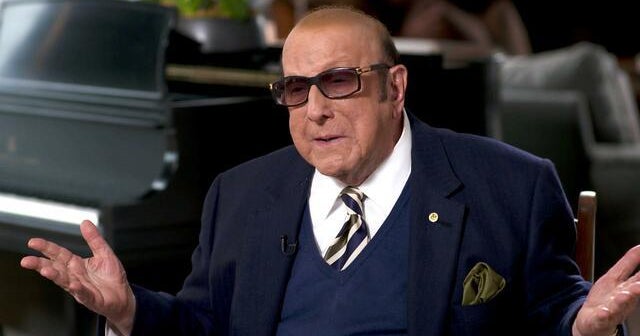Clive Davis, one of the most iconic figures in the music industry, has recently reflected on his life and career, sharing long-hidden details about his journey to the top.
Known as the mastermind behind the success of legends like Whitney Houston, Barry Manilow, and Earth, Wind & Fire, Davis’s rise from a modest background to becoming a powerhouse in the music world is nothing short of extraordinary.

Born in 1932 in Brooklyn, New York, Davis came from humble beginnings. His father, Herman, worked as an electrician and salesman, while his mother, Florence, was a homemaker.
Life was stable, but tragedy struck early—Davis lost both parents within a year during his teens. Orphaned at 15, he was taken in by his older married sister, whose support helped him stay resilient. Despite the emotional toll, Davis excelled academically, a testament to his determination and intellect.
After graduating as the valedictorian of Erasmus Hall High School, Davis earned a scholarship to New York University, where he majored in political science. His academic excellence continued, graduating magna cum laude in 1953 and earning Phi Beta Kappa honors. This secured him another scholarship, this time to Harvard Law School, where he obtained his law degree in 1956.

Initially, Davis embarked on a legal career, working for a small firm in New York City. A case involving CBS, a major broadcasting network, became a turning point. His sharp legal mind caught the attention of CBS executives, and by 1960, he was recruited as assistant counsel at Columbia Records, a CBS subsidiary. This marked the beginning of his remarkable career in the music industry.
Davis’s legal acumen quickly earned him recognition. Within five years, he was promoted to General Counsel of Columbia Records. However, his responsibilities soon extended beyond legal affairs. Davis began to immerse himself in the business and creative aspects of the company, showing an innate understanding of the industry. By 1967, he was named President of Columbia Records, a role that allowed him to revolutionize the company’s approach to music.

Under Davis’s leadership, Columbia diversified its roster, signing groundbreaking artists across genres. He embraced the burgeoning rock and roll movement, bringing in talents like Janis Joplin and Santana, and later expanded into pop, soul, and R&B. His vision transformed Columbia Records into a cultural juggernaut.
Beyond business, Davis was deeply involved in artist development. He had a unique ability to spot and nurture talent, often guiding artists in refining their sound to achieve commercial success. His mentorship was instrumental in shaping the careers of numerous superstars.
Today, at 92, Davis remains active as the Chief Creative Officer of Sony Music Entertainment. His legendary pre-Grammy parties are a testament to his enduring influence. Davis’s story is not only one of professional triumph but also of resilience and reinvention. From the ashes of personal loss, he built a legacy that changed the face of music forever.


